► BMW M Mixed Reality tested
► Driving an M4 using a VR headset
► Gaming meets the real world
Ever played a video game so realistic you felt you were genuinely there? Modern screenplay is so fast, so visceral, so accurate that the gap between reality and the virtual world is narrower than ever. We should know: we hammered a BMW M4 around an empty race track, with the driver’s head shrouded in a VR headset, and lived to tell the tale.
It’s all part of BMW’s M Mixed Reality, a rolling lab testbed that lets you drive a real M sports car around an empty test track using artificial gameplay, harnessing the latest advances in processing power, eye-tracking and ultra-high-definition goggles.
Sounds like a Mario Kart skunkworks, but there’s a serious edge to the project: BMW wants to push the frontiers of virtual, augmented and mixed reality – to understand how human beings interact with digital interpretations of the reality around them.
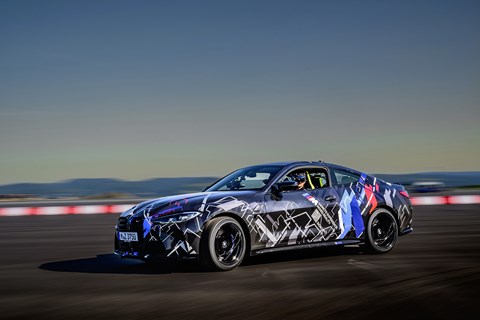
Today’s head-up displays will be overhauled in 2025 with the new full-width Panoramic Vision stepchange, and M Mixed Reality shows what could follow later in the decade if current technology trends become more extreme.
Driving a BMW M4 around a track using nothing but a VR headset
And it is pretty extreme. I warily don the 12-megapixel Varjo XR-3 headset and before we set off follow an installation process that’s like an eye test at the opticians, staring at dots and symbols while the mixed-reality goggles learn to track my eye and head movement. It’s so they can accurately project the gameplay into a photorealistic line of sight.
Once ready, I set off and immerse myself in a digital world that could be taken from an arcade machine. It’s the BMW M Mixed Reality metaverse, a race track with barriers, bridges and bonus tokens to collect as we drive round. It’s a route that’s been carefully selected to work on the huge concrete apron we’re actually driving around. Reassuringly, there’s a safety co-pilot sitting next to me in case I hallucinate, pass out or go rogue.
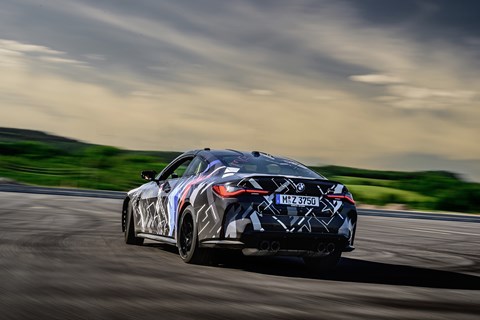
It’s all very odd. I quickly learn to trust the high-fidelity imagery, yet I’m driving a real M4, its turbocharged flat six snarling and thrusting us around the empty apron. It’s insane, great fun and – when my live stream temporarily crashes (‘You turned your head too far to look at the door mirrors’) – rather disturbing. It dents my confidence and I don’t drive quite as briskly after that.
BMW says the data is helping it design future in-car AR and VR systems. But I’d rather just enjoy an M4 without any goggles, thank you very much.
BMW Neue Klasse: the next-gen 3-series and its extraordinary tech
BMW M Mixed Reality: how it works
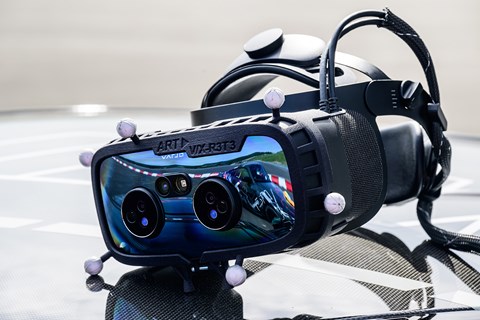
1) Driving Goggles, 2023-style
BMW uses state-of-the-art Varjo XR-3 mixed reality headsets, offering photorealistic imaging and the widest field of view on the market. Cost? Around £6700 a pop.
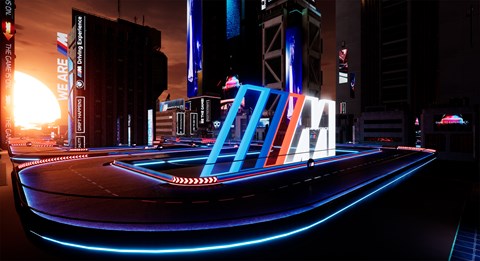
2) BMW gameplay
Munich is working with gaming specialist Epic Games to develop the M Mixed Reality software. It processes ECU data on the car’s movement, yaw and position.
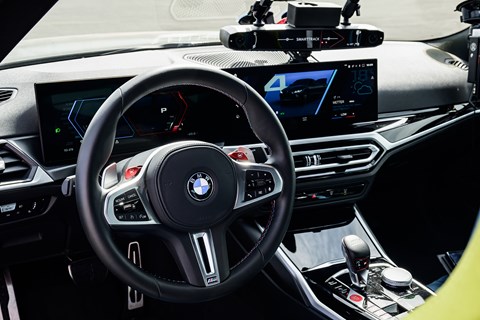
3) M4 as videogame controller
Two M4s are devoted to the project, nicknamed Bonnie and Clyde by engineers. They are mechanically stock, barring an extra brake pedal for the safety co-pilot riding shotgun.
Does it work?
The fact that we’re still here to write the tale suggests that it does work, yes. BMW M Mixed Reality is an extraordinary fusion of the virtual and physical worlds. It’s uncanny how quickly we learned to trust the system – until a momentary blip in gameplay dented our confidence.